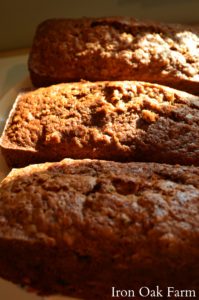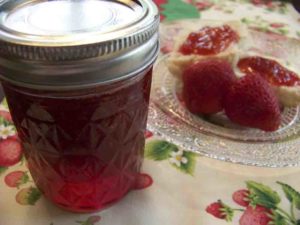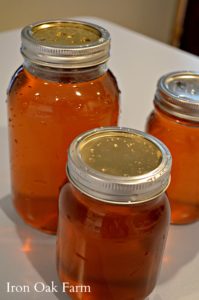What are Cottage Food Laws?
 The Cottage Food Laws are a set of more lenient regulations that allow small entrepreneurs to sell homemade foods to the public without having to follow and apply for more restrictive and expensive licensing that larger facilities have to abide by.
The Cottage Food Laws are a set of more lenient regulations that allow small entrepreneurs to sell homemade foods to the public without having to follow and apply for more restrictive and expensive licensing that larger facilities have to abide by.
The main focus of these laws come in the form of “disclaimer” type labeling and the ban of certain foods that have more of an involved storage or preparation process. There is also an income cap. This changes between states and for different items. The producer must stay beneath the designated income to be considered a Cottage Food industry and benefit from the more lenient regulations.
Almost every state has their own set of laws pertaining to the Cottage Food industry. Covering each one would make for quite a long post so I’m going to center this post around where to find the information to comply with these laws, and use our home state of Michigan as an example.
To find the Cottage food laws for your own state, visit this site:
http://www.pickyourown.org/CottageFoodLawsByState.htm
Michigan’s Actual Law
The Michigan Law reads:
“Michigan’s Cottage Food Law, PA 113 of 2010 exempts a “cottage food operation” from the licensing and inspection provisions of the Michigan Food Law. A cottage food operation still has to comply with the labeling, adulteration, and other provisions found in the Michigan Food Law, as well as other applicable state or federal laws, or local ordinances.”
To read the rest of the law, click below.
http://www.michigan.gov/mdard/0,4610,7-125-50772_45851-240577–,00.html
 Michigan law is broken into three main regulations:
Michigan law is broken into three main regulations:
- Items must be non-potentially hazardous foods that do not require time and/or temperature controls for safety.
- Items must be labeled according to the law.
- The producer must stay under $20,000 yearly income.
- So what is a non-potentially hazardous food?
 Most of the restrictions come with food that has to be refrigerated, or food that requires a pressure canner to process. There are additional food items that are slightly more prone to spoilage than a more basic form of the food.
Most of the restrictions come with food that has to be refrigerated, or food that requires a pressure canner to process. There are additional food items that are slightly more prone to spoilage than a more basic form of the food.
The complete list is here:
Potentially hazardous foods that require time and/or temperature control for safety are NOT ALLOWED to be produced in a home kitchen and must be produced in a licensed kitchen. Examples include:
- Meat and meat products like fresh and dried meats (jerky)
- Fish and fish products like smoked fish
- Raw seed sprouts
- Vegetable jams/jellies (e.g., hot pepper jelly)
- Canned fruits or vegetables like salsa or canned peaches
- Canned fruit or vegetable butters like pumpkin or apple butter
- Canned pickled products like corn relish, pickles or sauerkraut
- Pies or cakes that require refrigeration to assure safety like banana cream, pumpkin, lemon meringue or custard pies; cheesecake; and cakes with glaze or frosting that requires refrigeration (e.g., cream cheese frosting)
- Milk and dairy products like cheese or yogurt
- Cut melons
- Caramel apples
- Hummus
- Garlic in oil mixtures
- All beverages, including fruit/vegetable juices, Kombucha tea, and apple cider
- Ice and ice products
- Cut tomatoes or chopped/shredded leafy greens
- Confections that contain alcohol, like truffles or liqueur-filled chocolates
- Foccaccia style breads with fresh vegetables and/or cheeses
- Food products made from fresh cut tomatoes, cut melons or cut leafy greens
- Food products made with cooked vegetable products that are not canned
- Sauces and condiments, including barbeque sauce, hot sauce, ketchup, or mustard
- Salad dressings
- Pet food or treats
- Labeling
 Labeling is quite detailed and even has an outline of what letters should be capitalized etc. For the most part the label is required to inform the public that the food item has not been inspected by the Michigan Department of Agriculture and Rural Development.
Labeling is quite detailed and even has an outline of what letters should be capitalized etc. For the most part the label is required to inform the public that the food item has not been inspected by the Michigan Department of Agriculture and Rural Development.
It also must include ingredients used, the name of the maker and their address. There are specialized regulations for food containing nuts and alcohol.
Here is an example of a correct label:
MADE IN A HOME KITCHEN THAT HAS NOT BEEN INSPECTED BY THE
MICHIGAN DEPARTMENT OF AGRICULTURE
& RURAL DEVELOPMENT
Chocolate Chip Cookie
Artie Pinkster
123 Foodstuff Lane
Casserole City, MI 82682
Ingredients: Enriched flour (Wheat flour, niacin, reduced iron, thiamine, mononitrate, riboflavin and folic acid), butter (milk, salt), chocolate chips (sugar, chocolate liquor, cocoa butter, butterfat (milk), Soy lecithin as an emulsifier), walnuts, sugar, eggs, salt, artificial vanilla extract, baking soda
Contains: wheat, eggs, milk, soy, walnuts
Net Wt. 3 oz (85.05 g)
- Income
In order to qualify under the Cottage Food Laws and not have to apply for licensing that larger companies require, Michigan law states that you may not earn more than $20,000 per year.
 There is an exception with this income for Honey and Maple Syrup producers. They must stay under a $15,001 gross income.
There is an exception with this income for Honey and Maple Syrup producers. They must stay under a $15,001 gross income.
The law in its entirety can be quite lengthy and at times difficult to interpret. Michigan State University Extension offers training programs to help individuals understand the law and to be educated in the areas of food safety.
“Michigan State University Extension offers an online Cottage Food Law Food Safety Training program to educate those wishing to prepare and sell foods under the Cottage Food Law. The training program, funded by a Food Safety Education Fund grant from the Michigan Department of Agriculture & Rural Development, covers safe food production, packaging and labeling, storing and transportation. To complete the online training, visit Michigan Cottage Food Law Food Safety Online Training.”
For more information on The Cottage Food Laws in your area contact your County Extension.
Please read the law in its entirety before beginning any food industry.










